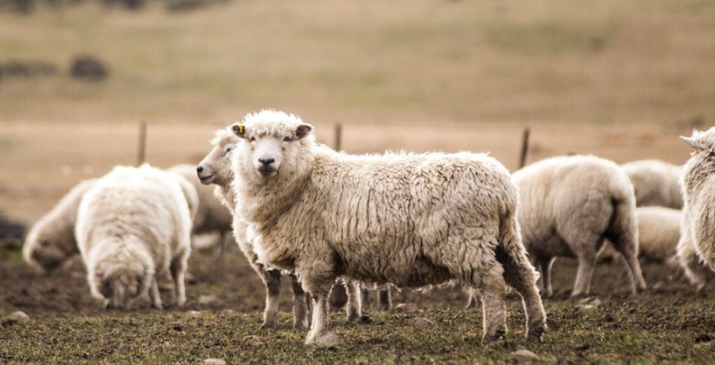As you might discovered, I am selling Rhea: a (knitwear) label that uses Merino Wool. But what exactly is merino wool, and what makes it so special?
In this blog, I an sharing the pro's and environmental impact of merino wool.
The Merino Sheep
Merino wool originates from the fleece of the Merino sheep. Merino wool is a natural fiber that is grown year-round by Merino sheep, which consumes a simple blend of natural ingredients such as sunshine, water, fresh air, and grass. Every year these sheep produce new fleece, making wool a completely renewable fiber.

The pro's of merino wool
- Softness: Merino wool is incredibly soft and gentle against the skin, and it is great for people who are sensitive and might find traditional wool itchy or irritating.
- Controls Body Temperature Unlike synthetics, wool is an active fiber. It reacts to the weather to keep the body cool when it's hot, and warm when the temperature drops.
- Self cleaning: Lanolin is a natural wax that makes merino wool dirt repellent and antibacterial. The lanolin (wool fat) slows down the absorption capacity. Moisture and dirt stay on the surface and don't go into the fabric. It will neutralize because of the enzymes in the fat that break down bacteria. Do you want to wash the wool? Then read the wash instructions here.
- Breathable: Wool easily absorbs moisture particles and moves them away to evaporate into the air. It's good to know that Rhea combines merino wool with Tencel Lyocell, to make the fabric even more breathable in summer.
The Environmental Impact
I carefully choose all items, both sustainable and vintage, and I think it's important to be transparent about the sustainability part. That is why I thought it might be interesting to dig a bit deeper into the environmental impact of merino wool.
Rhea sources their wool via the NATIVA group, where traceability, sustainability, animal welfare and corporate social responsibility are key. To ensure this, they developed The NATIVA Protocol.

The NATIVA Protocol certifies every step of the supply chain, from farm to brand, and ensures:
Animal welfare
To ensure animal welfare, each farmer has a management plan, assessing feeding, breeding, behavior, animal handling and health and infrastructure. This includes stress-free shearing and the prohibition of mule sing.
Corporate Social Responsibility.
The sustainability and economic growth of farming depends greatly on the socio-economic welfare of farmers and their communities. As part of the United Nations Global Compact, NATIVA is committed to respecting, defending and applying principles on human rights, labor, environment and anti-corruption both at the farm and industry level.
Curious to read more about the protocol? Read more about it here.
From Sheep to knitted items.
Rhea works with Blockchain Technology as a tool to guarantee traceability and transparency along their entire value chain. A unique QR code is generated for each knit of Rhea. Once you receive your knit, you can scan the QR code to view the NATIVA Blockchain website, where you can trace the journey of the wool knit; from wool to wear.
I hope you liked reading this blog! Do you have any questions or suggest about (this) blog? Please don't hesitate to reach out to me by e-mail or WhatsApp.


